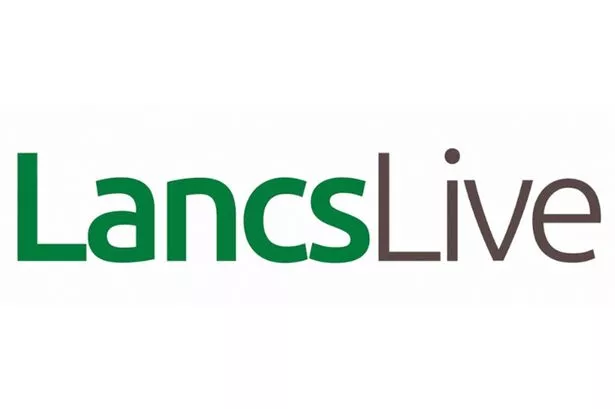Mis-sold pension claims
Find out if you have a valid mis-sold pension claim. Fill in our free enquiry form, and we’ll call you back.
What is a mis-sold pension?
A mis-sold pension is when you’re misled or poorly advised into transferring your pension – often into high-risk schemes or products with hidden fees – without being given clear information about the risks or costs.
Cases of mis sold pensions usually involve pressure to act quickly or a lack of proper explanation around how the pension would perform.

10 signs you were mis-sold your pension
If you’re unsure whether your financial advisor has mis-sold your pension, here are 10 signs of pension mis-selling:
- Being advised to leave a secure pension – Were you advised to transfer out of a final salary (defined benefit) scheme, even though it offered long-term stability?
- Risks not clearly explained – Did the adviser skip over important details such as potential losses, high charges, or whether the transfer matched your risk tolerance?
- Promised high returns – Investments always carry some risk. Promises of guaranteed high returns are usually unrealistic and may be misleading.
- Felt rushed into a decision – Pension transfers are significant and should be considered carefully. If the process felt rushed, the advice may not have met professional standards.
- Unregulated investments – Were you encouraged to invest in things like overseas property, carbon credits, or storage units? These are often linked to high-risk, unregulated schemes.
- Pension lost major value – Has your pension performed much worse than expected after the transfer? Were you warned this could happen?
- Fees weren’t made clear – Are there ongoing or one-off charges you weren’t made fully aware of at the outset?
- Unsolicited contact – Did someone get in touch out of the blue to talk about pension transfers? This is often a sign of an unregulated or unauthorised firm.
- Advice not tailored to your situation – Was the recommendation based on your goals, risk level and retirement needs? If not, it may have been unsuitable.
- Lost pension benefits – Did you lose guaranteed income or employer-linked benefits after transferring out of your original scheme?
If even one or two of these sound familiar, you might’ve been mis-sold and may be entitled to compensation. Get in touch with the team at Spencer Churchill Claims Advice now to learn more.

How do you know if your mis-sold pension claim is legitimate?
A legitimate mis-sold pension claim usually involves misleading advice or a lack of clear information. This often means being persuaded to leave a secure workplace pension for a higher-risk option – like a SIPP – without fully understanding the risks. In some cases, people are also advised to invest in unusual assets such as overseas property or carbon credits.
If your pension transfer didn’t match your financial goals or risk tolerance, it may qualify as mis-selling.

Who can you claim against for mis-sold pensions?
Mis-sold pensions claims are either made against the financial adviser who gave the advice or the company they worked for. If the adviser was independent, they’re typically the main point of responsibility. If they were part of a larger company, the firm may be liable.
In some cases, the pension provider may also be responsible, particularly if they failed to carry out proper checks or gave unclear information about the product.
If the adviser is regulated by the FCA, you may be able to claim through official bodies such as the Financial Ombudsman Service or the Financial Services Compensation Scheme (FSCS), depending on their status.

How long do you have to make a mis-sold pension claim?
The time limit for a mis-sold pension claim is usually six years from when the pension was arranged, or three years from when you first became aware something was wrong.
These deadlines can vary depending on your individual circumstances, such as when you noticed financial losses or received advice that turned out to be misleading. Acting quickly helps make sure you stay within the regulatory time limits.

How long does it take to claim for mis-sold pensions?
The time it takes to resolve a mis-sold pension claim can vary depending on the case. If the firm is still trading, it needs to respond within 8 weeks.
If the claim is passed to the Financial Ombudsman Service , it can take 6 months or longer, depending on how complex your case is. For firms that are no longer operating, claims made through the Financial Services Compensation Scheme (FSCS) typically take between 6 and 12 months, depending on the evidence and how long investigations last.

How much does it cost to claim for mis-sold pensions?
Claiming for mis-sold pensions often involves no upfront cost if you use a firm that offers a ‘no win, no fee’ arrangement. This is a common approach in the UK. If the claim is successful, a percentage of your compensation (agreed in advance) is taken as a fee.
You can also make a claim yourself through the Financial Ombudsman Service or the Financial Services Compensation Scheme (FSCS), which is free to use. However, this route involves managing your own paperwork and evidence.

What if the company you want to claim against for your mis-sold pension has gone bust?
If the firm responsible for your mis-sold pension is no longer trading, you may still be able to claim through the Financial Services Compensation Scheme (FSCS), as long as the firm was FCA-regulated.
The FSCS can cover losses of up to £85,000 for mis-sold pensions, based on the financial harm caused. To support your case, you’ll need documents such as pension statements, transfer paperwork, or adviser correspondence.

How do you find a trusted service for mis-sold pension claims?
When choosing a service to handle your mis-sold pension claim, look for firms with experience in pension cases, clear fee structures, and a proven track record of successful claims.
Check for FCA regulation or affiliations, and review client feedback or case studies for evidence of expertise. Be cautious of any service that promises guaranteed outcomes. Compensation will always depend on the specific details of your case and the decisions made by the relevant authorities.

Could you have been mis-sold a pension?
Mis-sold pensions have impacted thousands of people across the UK. Many have faced unexpected losses and been left unsure about their financial future. Between 2020 and 2022 alone, more than £26 million in losses were reported.
In other words, it’s entirely possible you were mis-sold your pension, especially if the advice you received wasn’t clearly explained or didn’t reflect your situation.
How can you tell you’ve been mis-sold your pension?
You may have been mis-sold your pension if:
- You were advised to leave a secure final salary (defined benefit) pension
- You weren’t clearly told about the risks, fees, or chances of losing money
- You felt pressured or didn’t fully understand the advice you were given
This could apply to transfers involving:

How much money could you get for your mis-sold pension?
The amount of money you could get for a mis-sold pension depends on things like:
- Value of your pension – Larger pension pots may result in higher claims.
- Extent of financial loss – Greater losses typically lead to greater compensation.
- Compensation limits – What you can claim depends on whether the adviser or provider is still trading.
Compensation limits explained
- Financial Ombudsman Service (FOS) – If the adviser or provider is still active, the FOS can award up to £375,000 in compensation.
- Financial Services Compensation Scheme (FSCS) – If the firm has gone out of business, the FSCS may cover losses up to £85,000, depending on the evidence you provide.

We’re here to recover your mis-sold pension losses today!
Pension misselling can leave you unsure about your financial future. If you’re dealing with losses from a pension transfer that wasn’t right for you, we can help you understand your position and what steps you can take.
Why work with us?
Here are four reasons clients choose us to manage their mis-sold pension claims:
- We know how pension mis-selling works and have helped people just like you recover their money.
- Our team has supported claims across a wide range of pension types and adviser setups.
- We provide clear, jargon-free information and practical support from the start, so you always understand what’s happening.
- We treat every case with care and attention, and we’ll always keep you informed as your claim progresses.
How does our claims process work?
It’s worth finding out if you can get your money back. Here’s how our simple process works:

What are you waiting for? Start your mis-sold pension claim now
Think you’ve been mis-sold a pension? Now could be the right time to check. Delays can mean missed opportunities, especially if your pension was affected by unsuitable advice.
There’s no upfront cost to start the process, and we’ll handle the paperwork for you.
We’ve supported hundreds of people in claiming back what they’re owed. Whether your adviser is still trading or not, we’ll help you understand what to do next.
Have you been a victim of financial mis-selling?
Spencer Churchill Claims Advice featured on:
Real people, real mis-sold pension compensation payouts
We’ve helped pension holders across the UK recover life-changing compensation after receiving poor financial advice. Here are just a few success stories:

Mr J: Transferred out of the Armed Forces Pension Scheme into a high-risk SIPP
Compensation: 92,802.70

Mrs T: Advised to transfer pension without proper risk assessment
Compensation: 50,000

Mr D: Mis-sold advice led to major losses in the Mineworkers' Pension Scheme
Compensation: 159,822.82
These are just a few examples of the people we’ve helped. If you suspect you’ve been mis-sold a pension and deserve a compensation, don’t wait—find out if you have a claim today.
What types of mis-sold pension claims do we handle?
Mis-sold pension FAQs
These are some of the most common questions we get asked about mis-sold pension claims.
Can I claim compensation for a mis-sold pension?
Yes, if you received poor financial advice that led you to transfer or invest your pension in an unsuitable scheme, you may be entitled to compensation. Common signs of a mis-sold pension include hidden fees, high-risk investments, or being pressured into a transfer. The Financial Services Compensation Scheme (FSCS) can award up to £85,000 in compensation for eligible claims. Check today if you qualify for a payout.
How do I start a mis-sold pension claim?
Starting a mis-sold pension claim is simple. First, get a free, no-obligation review of your case from our claims specialists. If you have a valid claim, we’ll handle all the paperwork and submit your case to the FSCS or Financial Ombudsman. You won’t pay anything upfront, and we’ll keep you updated at every step. Start your claim today.
How much does it cost to claim for a mis-sold pension?
Most mis-sold pension claims are handled on a no win, no fee basis, meaning you won’t pay unless your claim is successful. If you win, a pre-agreed fee will be deducted from your compensation. We offer free initial assessments, so there’s no cost to check your eligibility. Find out if you have a claim today.
How long do I have to claim for a mis-sold pension
Yes, there is a time limit on making a claim for a mis-sold pension. The time limit is usually six years from the date you received the poor advice, or three years from when you ought to reasonably have known you had cause to complain. We would need to consider this on a case by case basis.
How can I make a mis-sold pension claim?
Starting a mis-sold pension claim is straightforward with us. Simply reach out for a no-strings-attached chat with our specialists. If your claim is valid, we’ll help you kick things off. Why not give us a call today? We’re here to help.
Can I take legal action against my financial advisor for mis-sold pension advice?
Yes, if your financial advisor gave negligent or misleading pension advice, you may be able to claim compensation. If they are still trading, you can complain directly or escalate to the Financial Ombudsman. If they have ceased trading, the FSCS may provide compensation of up to £85,000. Contact us to explore your legal options.
Can I get compensation for bad pension advice?
Yes, you may be able to claim compensation for bad pension advice if you can prove that the advice you received was negligent. This means that the financial advisor must have failed to meet the standard of care that a reasonably competent financial advisor would have met in the same circumstances.
We know it can sound complicated, which is why we’re here to help! Get in touch with our teams today for a no-obligation chat about your situation.
How much do you charge for a mis-sold pension claim?
At Spencer Churchill Claims Advice, we offer a FREE initial assessment of your claim and we won’t take any fees up front – ever. Our team of experienced and specialist claim advisors are trained to get you the most mis-sold pension compensation possible.
How much compensation can I get for a mis-sold pension?
Compensation for a mis-sold pension depends on the financial loss suffered. The FSCS compensation limit is up to £85,000 per claim, while the Financial Ombudsman may award more in certain cases. The final amount depends on investment losses, fees, and lost pension benefits. Get in touch to see how much you could claim.
Can I still claim compensation if my pension provider has gone bust?
Yes! Even if your pension provider has collapsed, you may still be eligible for compensation. The FSCS provides up to £85,000 in protection if the firm was FCA-regulated. If your pension was transferred into an unsuitable investment, you could still recover lost funds. Check now to see if you qualify.
How long does it take to receive mis-sold pension compensation?
The timeframe varies depending on the complexity of the case. FSCS claims typically take 6–12 months, while Financial Ombudsman cases may take longer if the firm disputes liability. We handle the full process, so you don’t have to worry about delays. Start now to get your claim moving today.
What is the Financial Services Compensation Scheme (FSCS) and how does it help with mis-sold pensions?
The Financial Services Compensation Scheme (FSCS) protects consumers when FCA-regulated firms go bust. If you’ve been mis-sold a pension by a firm that has ceased trading, the FSCS can award up to £85,000 in compensation. If your financial loss exceeds this amount, you may still be able to claim additional compensation through the Financial Ombudsman Service (FOS).
Think you have a claim? Contact us today for a free assessment.
What happens if I was mis-sold my pension by a regulated firm that is still trading?
If your financial advisor or pension provider is still in business, you must first file a complaint directly with them. They have eight weeks to respond. If they reject your claim or fail to compensate you fairly, we can escalate your case to the Financial Ombudsman Service, which may award additional compensation.
Not sure where to start? We can guide you through the process. Get in touch today.
Can I claim for a mis-sold pension transfer into a SIPP?
Yes, many pension holders were mis-sold a Self-Invested Personal Pension (SIPP) without fully understanding the risks. If you were advised to transfer into a SIPP that contained high-risk or unregulated investments, you may be entitled to compensation.
Common red flags include:
- Investments in overseas property, forestry schemes, storage pods, or carbon credits
- Hidden fees that drained your pension
- Losing valuable pension benefits
Find out if you’re eligible to claim back your money today.
How do I know if my pension was invested in a high-risk or unregulated scheme?
Many mis-sold pension schemes were invested in high-risk, unregulated assets. If your pension was transferred into a Self-Invested Personal Pension (SIPP), a QROPS, or another private scheme, check if it included:
- Overseas property developments (hotels, resorts, vineyards)
- Forestry or ethical investment schemes
- Storage units or carbon credits
- Non-standard investment funds with no FSCS protection
If your pension was placed in any of these schemes without your full understanding, you could be entitled to mis-sold pension compensation.
Don’t wait – check if you qualify for a claim today.
Start your mis-sold pension claim today
Ready to take the next step? We’re here with clear, no-pressure advice. Give us a call today to find out if you have a valid claim
Office hours:
Monday: 8:00am–6:00pm
Tuesday: 8:00am–6.00pm
Wednesday: 8:00am–6:00pm
Thursday: 8.00am–6.00pm
Friday: Office Closed










